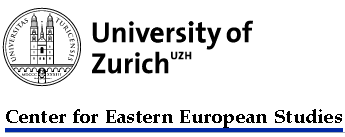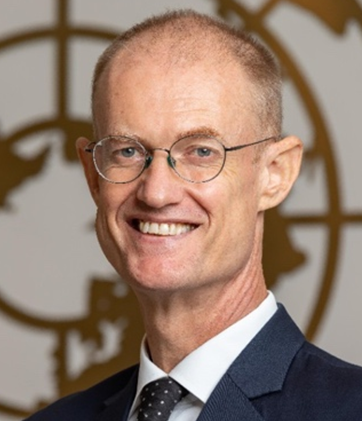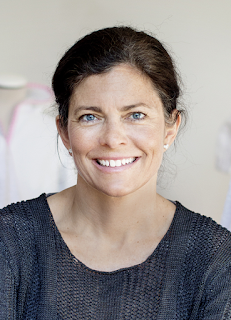|
|
ISSN 2667-9833
|
Caucasian Journal is now with video. |
Two years of Covid in South Caucasus at a glance
University of Zürich offers paid fellowship opportunities for research on South Caucasus
Nick BERESFORD: "We need to keep up momentum to achieve prosperity underpinned by democratic institutions and the rule of law"
Caroline von POST: “Why do we dress babies in brand new clothes that are full of chemicals?”
These are some questions which we have for our new guest - Caroline von POST (Sweden), a biologist, circular economy consultant, and head of an aptly-named company, Stormie Poodle.
▶ ქართულად: Read the Georgian version here.
▶ Հայերեն: Read the Armenian version here.
Ambassador Kirsti NARINEN: "Finland is a constructive and flexible partner, a peace-contributing international actor"
▶ ქართულად: Read the Georgian version here.
▶ Հայերեն: Read the Armenian version here.Opportunity for Georgians to study in Norway: Scholarship Program for Master of Science in hydropower development
Norwegian Water Resources and Energy Directorate, through the Ministry of Economy and Sustainable Development of Georgia, offers four scholarships to Georgians who want to study Hydropower development at the master’s level at Norwegian University of Science and Technology (NTNU) in Trondheim/Norway. Scholarships are tenable for the two-year master programme starting in 2022.
▶ ქართულად: The Georgian text version is here.
Georgia and Norway – two hydropower countriesAbout 80 percent of Georgia’s electricity demand is covered by local hydropower plants. The construction of hydro power plants in Georgia has a long tradition, which has been reactivated in recent years. Both large power plants with reservoirs and small hydropower plants are under construction or being planned. Read more: Bjorn BRANDTZAEG: "As Georgia develops, it needs more domestically generated electricity".
Norway has a long tradition in developing hydropower. Hydropower is the mainstay of the Norwegian electricity system. Norway has 1660 hydropower plants, which accounts for 31 837 or 96 % of total installed capacity. Norway and NTNU has developed competence at the highest international level within environmentally friendly development and operation of hydropower plants.
Caucasian Journal to host first Georgian-Norwegian Nordic Talk on hydropower education
Petter SVAETICHIN: “Georgians are traditionally strong in the main AI subjects of mathematics and physics”
 |
▶ ქართულად: Read the Georgian version here.
Jānis IKSTENS: “Interest from Georgian students in studying in Riga is very high”
 |
▶ ქართულად: Read the Georgian version here.
Ambassador Gert ANTSU: ”At times reforms sound like a tired buzzword that has lost its luster”
▶ ქართულად: Read the Georgian version here.
Inka HOPSU, Member of Finnish Parliament: “I'm happy I was able to participate in politics as a woman with small babies”
 |
| Photo: Hanne Salonen / Finnish Parliament |
▶ ქართულად: Read the Georgian version here.
Video: Kristina KALLAS and Arnold STEPANIAN discuss national minority policies in Estonia and Georgia
 11.07.2021 (Caucasian Journal). Today at Caucasian Journal we are talking about the national minorities policies in Georgia and Estonia. Our guests are Arnold STEPANIAN, Chairman of Public Movement “Multinational Georgia”, and Kristina KALLAS, Research Fellow at Tartu University Narva College, and leader of political party “Estonia 200”.
11.07.2021 (Caucasian Journal). Today at Caucasian Journal we are talking about the national minorities policies in Georgia and Estonia. Our guests are Arnold STEPANIAN, Chairman of Public Movement “Multinational Georgia”, and Kristina KALLAS, Research Fellow at Tartu University Narva College, and leader of political party “Estonia 200”.Kristina KALLAS and Arnold STEPANIAN discuss national minority policies in Estonia and Georgia
Arnold STEPANIAN: Hello first of all, yes we are one of the oldest NGOs - we were established in 1999. If I remember correctly, there were not more than 20-25 NGOs at that time.
Anne LIDGARD: “We are interested in attracting talent and can offer a very vivid startup scene”
▶ ქართულად: Read the Georgian version here.
Senator Rob PORTMAN on NATO membership for Georgia: "It is time to fulfill promise made in 2008"
Ambassador Helene SAND ANDRESEN: “No doubt that Georgia is part of the European family”
▶ ქართულად: Read the Georgian version here.
Video: Afton Halloran, Elene Shatberashvili, Dmitry Kostarov discuss sustainable food systems transition
 27.05.2021 (Caucasian Journal). Today at Caucasian Journal we are talking about sustainable food systems: The Nordic experience and its applicability for Georgia. Our guests are Dr. Afton HALLORAN, a Denmark-based expert in sustainable food systems transition, Elene SHATBERASHVILI from Elkana Biological Farming Association, and Dr. Dmitry KOSTAROV, head of agricultural television channel Saperavi TV and independent winemaker.
27.05.2021 (Caucasian Journal). Today at Caucasian Journal we are talking about sustainable food systems: The Nordic experience and its applicability for Georgia. Our guests are Dr. Afton HALLORAN, a Denmark-based expert in sustainable food systems transition, Elene SHATBERASHVILI from Elkana Biological Farming Association, and Dr. Dmitry KOSTAROV, head of agricultural television channel Saperavi TV and independent winemaker. Afton Halloran, Elene Shatberashvili, Dmitry Kostarov discuss sustainable food systems transition
Laura Thornton: "Democratic backsliding is like the pandemic. It is contagious"
Alexander KAFFKA, editor-in-chief of Caucasian Journal: Dear Laura, it is always a pleasure to meet you – virtually for the time being, but maybe also in person before long: I know that you are planning to be back to Georgia soon. You have worked in Tbilisi for a long period as the head of National Democratic Institute, so you are one of the most competent international experts when it comes to Georgia’s politics and sociology. What’s your attitude to Georgia now, and will you be visiting us this time as an expert?
Laura THORNTON: Well, I am not sure I am an expert, just an interested observer! My attitude toward Georgia is always one of hopeful optimism and desire for the country’s success. I believe Georgia faces similar challenges to many other places, including my own country. There is an alarming rise of authoritarian threats – both external and internal – which is impacting the quality of our democratic function. Deep polarization is paralyzing governance and thwarting democracy’s ability to deliver, which drives people into the arms of illiberal forces. Information integrity is the subtext of much of this, with disinformation efforts sowing discontent and exacerbating divisions. As I’ve said before, democracy is Georgia’s greatest asset and I believe in Georgian democrats to overcome these challenges by supporting pluralism, checks and balances, a robust civil society, and rule of law.
Ambassador Riina KALJURAND (video): "Estonians want to see the result, so we just do it"
Ambassador Riina KALJURAND: "Estonians want to see the result, so we just do it"
“The main pillar in our vision is the ethical aspect”: Guro RANES and Jan JOHANSEN explain why Norway’s roads are the world’s safest
 ▶ ქართულად: The Georgian text version is here.
▶ ქართულად: The Georgian text version is here.“The main pillar in our vision is the ethical aspect”: Guro RANES and Jan JOHANSEN explain why Norway’s roads are the world’s safest
U.S. Fulbright Graduate Student Program opens for Georgian citizens
The Fulbright Scholarship is one of the most prestigious scholarships offered by the U.S. Government. The recruitment of candidates for the Fulbright Graduate Student Program is based on an open competition held by the Public Affairs Section of the U.S. Embassy Tbilisi.
The program opening date for receiving applications is May 1, 2021.























